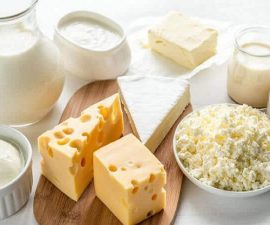It’s important to understand what to do to prevent hernia, a bulge against the skin that occurs if you have a weakening or an opening in your abdominal wall (a tough layer of muscle and tendon that extends from the ribs to the groin – it acts as your body’s corset to keep your abdominal contents in place). This is especially true if you have had the condition before.
Here are pieces of information for your hernia natural prevention!
Healthy weight, healthy abdominal wall
When it comes to preventing hernia naturally, first – and most obvious – is your abdominal fats. Excess fats in your belly will drive more pressure, stretching and weakening your abdominal cavity. Over time, this increases the risk of having an opening in the abdominal lining.
And you tend to have more abdominal fats if you’re overweight or obese. Reducing weight is also advisable before hernia repair surgery if the patient has excess weight. So maintaining a healthy-body weight is a must. Bonus, staying at your best shape is also beneficial for lots of things.
You may just need a simple weight loss diet or a more structured regimen of weight loss – depending upon the amount of your excess weight. And shed your excess pounds gradually! The key is not to lose weight as quick as possible, but how to keep it off in long term!
If you burn your pounds too fast, you’re more likely to lose more muscles and bone instead of fats. As a result, you will easily regain weight afterwards. Rapid weight loss is also bad for your metabolism, the natural mechanism of your body to turn calories into fuel.
Aim to drop one or two pounds a week. If necessary, work with a professional dietitian or a doctor for faster result without affecting the supply of nutrients your body needs.
The following simple ideas may help:
- Check how many calories you usually get in, then trim back a bit and cut back on portions.
- Keep hydrated, drink more water to help suppress your appetite (you’re not so hungry)!
- And always check food labels for calories in each serving! Just make sure that the ‘calories in” is not higher than the ‘calories out’.
Hernia natural prevention: What to eat?
Actually there is no specific diet to prevent hernia. But in general, it’s worth a try to restrict foods that probably cause constipation, such as; fatty foods, fried-fast foods, dehydrated foods (like beef jerky and potato chips), and dairy products – see more constipating foods here!
Chronic constipation provokes weakening of your abdominal wall. It drives you to frequently strain during bowel movements, causing a lot of pressure on the layer of connective tissue in your abdomen.
Your diet plays a role to move bowels more easily and maintain a healthy-body weight.
Fill up with high-fiber foods!
Focus on natural unprocessed foods (e.g. whole grains, vegetables, and fruits)! They are not only fully loaded with fiber, but also contain lots of essential nutrients such as vitamins, minerals, antioxidants, etc.
But if you don’t get used to diet high in fiber, increase your dairy fiber intake gradually. A quick, significant increase in fiber could be counterproductive. When your body is not ready, you may have diarrhea or abdominal bloating.
Make friends with healthy fats
The good news, you may not need to completely skip fats. But it’s important to make sure that your dietary fats are mostly derived from healthy, unsaturated fats (e.g. fish, nuts, olive oil, avocados, and seeds). Unlike foods high in saturated fats (e.g. red meat) — foods rich in unsaturated fats make you feel full longer throughout the day, and they’re good for your heart health. Even some are also good source for fiber.
What you drink can help, too
Some drinks are loaded with high sugars and calories, making constipation more likely. These include high-sugary caffeinated drinks, high-sugary juices, alcohol, and sodas. Restricting them is also a good way to cut down on your liquid calories, which is particularly helpful if you’re overweight.
Keep safe when exercise or lift weights!
Just because excess pressure in the abdomen can factor into hernia, this doesn’t mean that exercise or lifting weights are bad. Exercise is a good way to maintain a healthy body weight, making your body become leaner and stronger.
Even strength training (when done properly) may also help prevent hernia naturally, because it is great to build up the connective tissues of the body. The most important thing, avoid unnecessary ‘extra’ pressure that stretches and weakens your abdominal wall.
The following are a few tips to exercise or lift weights without hurting your abdominal lining:
- Always start your workout, especially before strength training, with a good warm up!
- When you want to scale up the weights you’re lifting, it’s still important to choose an appropriate amount of weight (depending on how strong you are). Do it safely in small increments – increase the weights gradually to reduce the risk of injury, rather than making too big of a jump! And when exercise, don’t push yourself too hard (stop if you experience pain or any other discomforts)!
- To reduce unnecessary pressure in the abdominal wall, always bend at your knees (not your waist) when lifting weights! Also, do it properly (avoid rushing)!
- When you need to lift a very heavy object, take a squatting position (to help concentrate your bodyweight on the feet) and keep your back straight. Or ask someone else to help (if possible).
- If necessary, do regular abdominal training – work with a professional trainer for more guidance!
Stop smoking
There are many reasons to stop smoking (if you’re a smoker). If the health of your body (especially the lungs) is not enough to make you quit, put also reducing the risk of hernia into the list!
Compared with non-smokers, smokers are more likely to have hernias. For instance, some studies suggest that smoking causes increased risk of inguinal and hiatal hernias.
The link between smoking and hernias is not always easy to understand. But it’s clear that smoking can make cough more likely. And if you have chronic cough, this increases your risk of hernias. Furthermore, tobacco smoke is loaded with numerous harmful toxins which some may also have an effect for the strength of your abdominal lining.
What else?
A hernia truss may help people with inguinal hernias feel more comfortable, but it’s not designed to prevent the condition. So you should not rely on it!
How about herbal supplements? There is still no strong evidence that they work effectively to prevent hernias. Before tying herbs or any alternative options, ask your doctor to keep safe — particularly if you’re taking certain medications.




